Central Teacher Eligibility Test (CTET) is a national-level examination conducted by the Central Board of Secondary Education (CBSE) to recruit teachers in government-aided and unaided schools. To be successful in the CTET exam, candidates must be familiar with the CTET syllabus 2024. The curriculum is based on the National Education Policy (NEP), National Curriculum Framework (NCF) 2005, and covers subjects like child development, pedagogy, and language. Knowing the syllabus like Mathematics, Science, Social Studies etc. will help the candidates to plan and organize their study schedule effectively, resulting in better preparation for the exam.
CTET Overview
CTET stands for Central Teacher Eligibility Test. CTET(Central Teacher Eligibility Test) is conducted by the Central Board of Secondary Education (CBSE) twice a year. CTET eligibility is decided by the National Council for Teacher Education (NCTE) as per the limited rules. Before appearing for the exam, the candidates must be aware of the qualifying measures for the CTET exam.
| Conducting Body | CBSE (Central Board of Secondary Education) |
| Exam Name | CTET (Central Teacher Eligibility Test) |
| Exam Frequency | Twice a year or as per vacancy |
| Mode of Exam | Offline |
| Exam Time Duration | 2 Hours 30 Minutes (150 Minutes) |
| Language | English and Hindi |
| Question Types | Objective (MCQs) |
| Maximum Marks | 150 Marks (for each paper) |
| Negative Marking | No Negative Marking |
| Purpose of Examination | To check the eligibility of candidates for primary and upper-primary level |
| Official Website | https://ctet.nic.in/ |
CTET full-form Concept
The full form of CTET is the Central Teacher Eligibility Test, which is a national-level examination conducted in India by the Central Board of Secondary Education to determine the eligibility of candidates for appointment as teachers. CTET is conducted twice a year and is for teachers who want to teach in the primary section.
The objective of CTET
The main objective of qualifying for the CTET exam is to get minimum eligibility for a central government teaching job. This is additional support for the profile. After the CTET certificate, the candidates can apply for all central government teaching jobs like KVS, NVS Army Teacher, ERDO etc.
CTET Syllabus 2024 Subject Wise
There are two papers in the CTET exam, Paper 1 and Paper 2. To become a teacher for classes 1 to 5, candidates will have to appear in Paper 1, while those aiming to teach classes 6 to 8 will have to appear in Paper 2. You can choose both options. Documents also. CTET Paper 1 syllabus includes the subjects of Child Development and Pedagogy, Language-I, Language-II, Mathematics and Environmental Studies. In contrast, the CTET Paper 2 syllabus includes the subjects of Child Development and Pedagogy, Language-I, Language-II, Mathematics and Science or Social Studies/Social Sciences.
CTET Syllabus 2024
Paper I (for classes 1 to V) Primary Stage
| Section | Syllabus | No. of Questions |
| Child Development and Pedagogy | (a) Child Development (Primary School Child) Concept of development and its relationship with learning Principles of the development of children Influence of Heredity & Environment Socialisation processes: Social world & children (Teacher, Parents, Peers) Piaget, Kohlberg and Vygotsky: constructs and critical perspectives Concepts of child-centred and progressive education Critical perspective of the construct of Intelligence Multi-Dimensional Intelligence Language & Thought Gender as a social construct; gender roles, gender bias and educational practice Individual differences among learners, understanding differences based on diversity of language, caste, gender, community, religion etc.The distinction between Assessment for learning and assessment of learning: School-Based Assessment, Continuous and Comprehensive Evaluation: perspective and practice Formulating appropriate questions for assessing the readiness levels of learners for enhancing learning and critical thinking in the classroom and for assessing learner achievement. | 15 |
| (b) Concept of Inclusive education and understanding children with special needs Addressing learners from diverse backgrounds, including disadvantaged and deprived Addressing the needs of children with learning difficulties, ‘impairment’, etc. Addressing the Talented, Creative, Specially abled Learners | 5 | |
| (c) Learning and Pedagogy How children think and learn; how and why children ‘fail’ to achieve success in school performance. Basic processes of teaching and learning; children’s strategies of learning; learning as a social activity; social context of learning. Child as a problem solver and a ‘scientific investigator’Alternative conceptions of learning in children, understanding children’s ‘errors’ as significant steps in the learning process. Cognition & EmotionsMotivation and learning Factors contributing to learning – personal & environmental | 10 | |
| Language I | (a) Language Comprehension Reading unseen passages – two passages, one prose or drama and one poem with questions on comprehension, inference, grammar and verbal ability (Prose passage may be literary, scientific, narrative or discursive) | 15 |
| (b) Pedagogy of Language Development Learning and acquisition Principles of Language TeachingRole of listening and speaking; function of language and how children use it as a tool A critical perspective on the role of grammar in learning a language for communicating ideas verbally and in written form Challenges of teaching language in a diverse classroom; language difficulties, errors and disordersLanguage Skills Evaluating language comprehension and proficiency: speaking, listening, reading and writing Teaching-learning materials: Textbook, multimedia materials, multilingual resources of the classroom Remedial Teaching | 15 | |
| Language II | (a) Comprehension: Two unseen prose passages (discursive or literary or narrative or scientific) with questions on comprehension, grammar and verbal ability. | 15 |
| (b) Pedagogy of Language Development Learning and acquisition Principles of Language Teaching Role of listening and speaking; function of language and how children use it as a tool A critical perspective on the role of grammar in learning a language for communicating ideas verbally and in written form; Challenges of teaching language in a diverse classroom; language difficulties, errors and disordersLanguage Skills Evaluating language comprehension and proficiency: speaking, listening, reading and writing Teaching-learning materials: Textbook, multimedia materials, multilingual resources of the classroomRemedial Teaching | 15 | |
| Mathematics | (a) Content Geometry Shapes & Spatial Understanding Solids around Us Numbers Addition and Subtraction Multiplication Division Measurement Weight Time Volume Data Handling PatternsMoney | 15 |
| (b) Pedagogical issues Nature of Mathematics/Logical thinking: understanding children’s thinking and reasoning patterns and strategies for making meaning and learning Place of Mathematics in Curriculum Language of MathematicsCommunity Mathematics Valuation through formal and informal methods Problems of Teaching Error analysis and related aspects of learning and teaching Diagnostic and Remedial Teaching | 15 | |
| Environmental Studies | (a) Content Family and Friends: Relationships, Work and Play, Animals and Plants Food Shelter Water Travel Things We Make and Do | 15 |
| (b) Pedagogical Issues Concept and scope of EVSSignificance of EVS, integrated EVSEnvironmental Studies & Environmental Education Learning PrinciplesScope & relation to Science & Social Science Approaches of presenting concepts Activities Experimentation/Practical Work Discussion CCE Teaching material/Aids Problems | 15 |
Paper II (For Class VI to VIII) Secondary Stage
| Section | Syllabus | No. of Questions |
| Child Development and Pedagogy | (a) Child Development (Primary School Child) Concept of development and its relationship with learning Principles of the development of children Influence of Heredity & Environment Socialisation processes: Social world & children (Teacher, Parents, Peers) Piaget, Kohlberg and Vygotsky: constructs and critical perspectives Concepts of child-centred and progressive education Critical perspective of the construct of Intelligence Multi-Dimensional Intelligence Language & Thought Gender as a social construct; gender roles, gender bias and educational practice Individual differences among learners, understanding differences based on diversity of language, caste, gender, community, religion, etc. The distinction between Assessment for learning and assessment of learning: School-Based Assessment, Continuous and Comprehensive Evaluation: perspective and practice Formulating appropriate questions for assessing readiness levels of learners for enhancing learning and critical thinking in the classroom and for assessing learner achievement. | 15 |
| (b) Concept of Inclusive education and understanding children with special needs Addressing learners from diverse backgrounds, including disadvantaged and deprived Addressing the needs of children with learning difficulties, ‘impairment’, etc. Addressing the Talented, Creative, Specially abled Learners | 5 | |
| (c) Learning and Pedagogy How children think and learn; how and why children ‘fail’ to achieve success in school performance. Basic teaching and learning processes; children’s learning strategies; learning as a social activity; social context of learning. Child as a problem solver and a ‘scientific investigator’ Alternative conceptions of learning in children, understanding children’s ‘errors’ as significant steps in the learning process. Cognition & Emotions Motivation and learning Factors contributing to learning – personal & environmental | 10 | |
| Language I | (a) Language Comprehension Reading unseen passages – two passages, one prose or drama and one poem with questions on comprehension, inference, grammar and verbal ability. | 15 |
| (b) Pedagogy of Language Development Learning and acquisition Principles of Language Teaching Role of listening and speaking; function of language and how children use it as a tool A critical perspective on the role of grammar in learning a language for communicating ideas verbally and in written form; Challenges of teaching language in a diverse classroom; language difficulties, errors and disorders Language Skills Evaluating language comprehension and proficiency: speaking, listening, reading and writing Teaching-learning materials: Textbook, multimedia materials, multilingual resources of the classroom Remedial Teaching | 15 | |
| Language II | (a) Comprehension: Two unseen prose passages (discursive or literary or narrative or scientific) with questions on comprehension, grammar and verbal ability. | 15 |
| (b) Pedagogy of Language Development Learning and acquisition Principles of Language Teaching Role of listening and speaking; function of language and how children use it as a tool A critical perspective on the role of grammar in learning a language for communicating ideas verbally and in written form; Challenges of teaching language in a diverse classroom; language difficulties, errors and disorders Language Skills Evaluating language comprehension and proficiency: speaking, listening, reading and writing Teaching-learning materials: Textbook, multimedia materials, multilingual resources of the classroom Remedial Teaching | 15 | |
| Mathematics | (a) Content Number System Knowing our Numbers Playing with Numbers Whole Numbers Negative Numbers and Integers Fractions Algebra Introduction to Algebra Ratio and Proportion Geometry Basic geometrical ideas (2-D) Understanding Elementary Shapes (2-D and 3-D) Symmetry: (reflection) Construction (using Straight edge Scale, protractor, compasses) Mensuration Data handling | 15 |
| (b) Pedagogical issues Nature of Mathematics/Logical Thinking Place of Mathematics in Curriculum Language of Mathematics Community Mathematics Evaluation Remedial Teaching Problem of Teaching | 15 | |
| Environmental Studies | (a) Content Food Materials The World of the Living Moving Things People and Ideas How things work Natural Phenomena Natural Resources | 15 |
| (b) Pedagogical Issues Nature & Structure of Sciences Natural Science/Aims & objectives Understanding & Appreciating Science Approaches/Integrated Approach Observation/Experiment/Discovery (Method of Science) Innovation Text Material/AidsEvaluation – cognitive/psychomotor/affective Problems Remedial Teaching | 15 | |
| Social Studies/Social Sciences | History Geography Social and Political Life Pedagogical issues | 60 |
CTET Exam Pattern 2024
Both CTET Paper I and II have a total of 150 multiple-choice questions (MCQs). 1 mark is given for correct answers and there is no negative marking for wrong answers. The paper is conducted as a pen-and-paper-based test in offline mode. Paper 1 has 5 sections while Paper 2 has 4 sections.
Paper I (for classes 1 to V) Primary Stage
CTET Paper-I exam is divided into 5 sections. The total number of questions and distribution of marks for Paper-1 is given below:
| Subjects | No. of Questions | Maximum Marks | Time Duration |
| Child Development and Pedagogy | 30 | 30 | 2 Hours 30 Minutes (150 Minutes) |
| Language I (compulsory) | 30 | 30 | |
| Language II (compulsory) | 30 | 30 | |
| Mathematics | 30 | 30 | |
| Environmental Studies | 30 | 30 | |
| Total | 150 | 150 |
Paper II (for classes VI to VIII) Elementary Stage
CTET Paper-II exam is divided into 4 sections. Candidates will have to choose between Mathematics Science and Social Studies in Paper 2. The total number of questions and marks distribution for Paper-2 is given below:
| Subjects | No. of Questions | Maximum Marks | Time Duration |
| Child Development and Pedagogy | 30 | 30 | 2 Hours 30 Minutes (150 Minutes) |
| Language I (compulsory) | 30 | 30 | |
| Language II (compulsory) | 30 | 30 | |
| A. Mathematics & Science | 30+30 | 60 | |
| B. Social Studies & Social Science | 60 | 60 | |
| Total | 150 | 150 |
CTET Eligibility Criteria 2024
Take a look at the basic CTET eligibility criteria below:
- To qualify CTET exam for Primary Teachers, candidates must have passed the 12th class with a minimum of 45% mark.
- To qualify for the CTET exam for entry-level teachers, candidates must have graduated with a minimum of 45% marks or must have passed the 12th class with at least 50% marks.
- Candidates must have completed the prescribed teacher training programme/teacher education course
CTET Eligibility for Paper 1 (Educational Qualification)
- Senior Secondary or its equivalent examination with a minimum of 50% marks and passed or appear in the final year examination of Diploma in Elementary Education (2 years duration). Or
- Must have secured a minimum of 45% marks in Senior Secondary or its equivalent examination and must have passed or appeared in the final year examination of Diploma in Elementary Education (2 years duration). Or
- Passed or appeared in Senior Secondary or its equivalent examination with minimum 50% marks and final year examination of Bachelor of Elementary Education (4 years duration). Or
- Must have passed or appeared in Senior Secondary or its equivalent examination with minimum 50 per cent marks and final year examination of Diploma in Education (2 years duration). Or
- a Bachelor’s degree with a B.Ed degree.
CTET Eligibility for Paper 2 (Educational Qualification)
- Must have passed or appeared in the final year examination for Bachelor’s Degree and Diploma in Elementary Education (2 years duration). Or
- Bachelor’s degree with 50% marks and B.Ed. Passing or appearing in the final year examination. Or
- Bachelor’s degree with 40% marks and must have passed or appeared final year B.Ed examination as per NCTE norms. Or
- Must have passed or appeared in Senior Secondary or its equivalent examination with minimum 50 per cent marks and appearing in the final year examination of Bachelor of Elementary Education of 4 years duration. Or
- Senior Secondary or its equivalent examination with 50 per cent marks and passed or appearing in the final year examination of B.A.Ed/B.Sc.Ed or B.A/B.Sc.Ed. Or
- Bachelor’s degree with 50% marks and passed or appearing in a B.Ed program of 1-year duration.
Effective Preparation Tips for the CTET Exam
Cracking the Central Teacher Eligibility Test (CTET) requires strategic planning and dedicated effort. Here are some valuable tips to help you ace your CTET exam:
1. Know the Syllabus and Exam Pattern:
- Thoroughly understand the CTET syllabus for Paper I (Child Development & Pedagogy, Language 1 & 2) and Paper II (chosen subjects).
- Familiarize yourself with the exam pattern, including the number of questions, marks per question, and negative marking (if applicable).
2. Build a Solid Foundation:
- Focus on strengthening your core concepts in Child Development & Pedagogy. This forms the base for effective teaching strategies.
- Brush up on your language skills in both Hindi and English, as they are crucial for communication and comprehension.
3. Gather Reliable Resources:
- Utilize recommended textbooks, study guides, and online resources aligned with the CTET syllabus.
- Consider joining coaching classes or online learning platforms for additional guidance and structured learning.
4. Practice Makes Perfect:
- Solve previous years’ question papers and mock tests regularly. This helps you gain familiarity with the question format, time management skills, and identify your strengths and weaknesses.
- Analyze your performance in mock tests and work on areas needing improvement.
5. Develop Effective Strategies:
- Create a study schedule that allocates sufficient time for each subject and revision.
- Develop effective note-taking strategies to consolidate your understanding of key concepts.
- Practice time management during mock tests to ensure you complete the paper within the allotted time.
6. Maintain Focus and Motivation:
- Find a dedicated study space free from distractions, allowing you to focus effectively.
- Join study groups or connect with fellow CTET aspirants for knowledge sharing, motivation, and emotional support.
- Maintain a regular sleep schedule and healthy lifestyle to enhance your focus and concentration.
7. Remember, Last-Minute Matters:
- Revise key concepts and formulas in the days leading up to the exam.
- Prepare a checklist of essential exam materials to avoid last-minute stress.
- Stay calm and confident on exam day.
By following these tips and putting in consistent effort, you can increase your chances of success in the CTET exam and start your rewarding journey as a teacher.



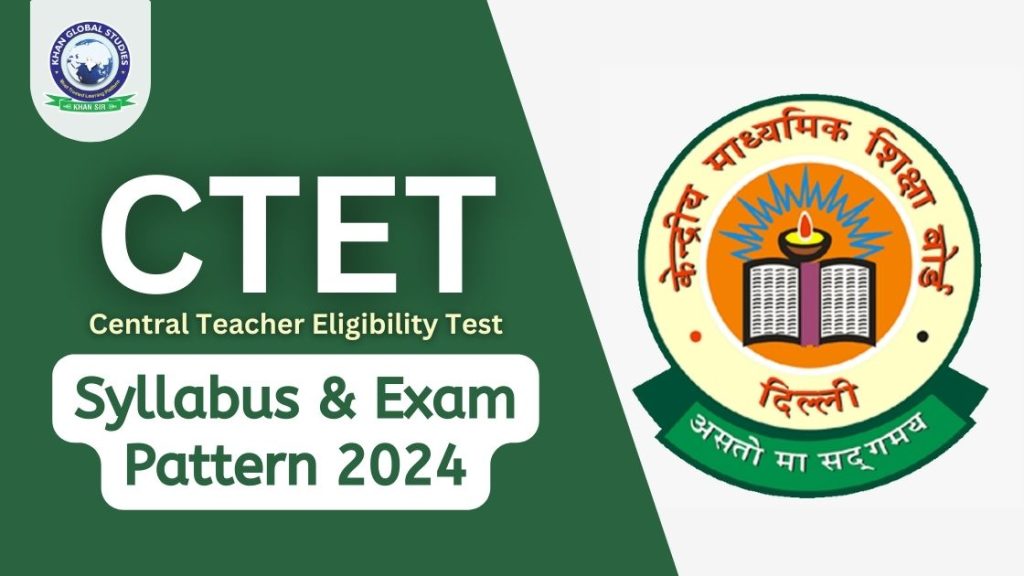
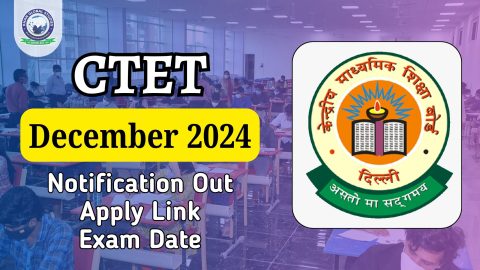
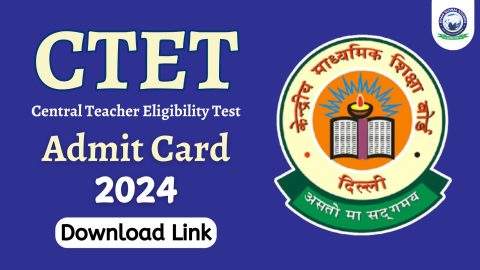
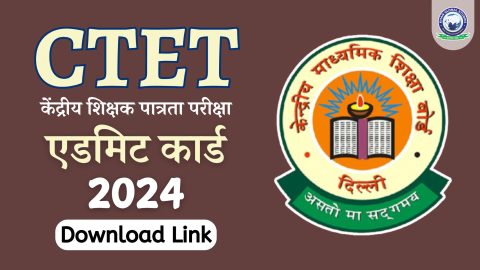
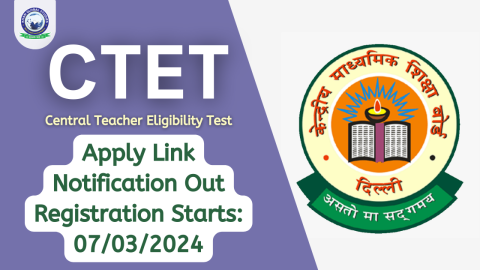
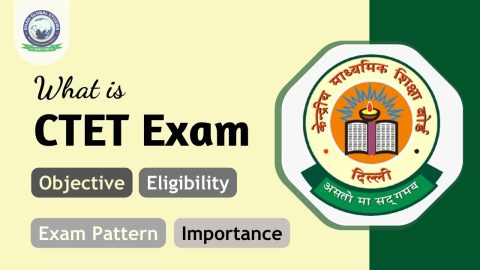
How to apply bped teachers
How to apply bped teachers in how many marks are there exam